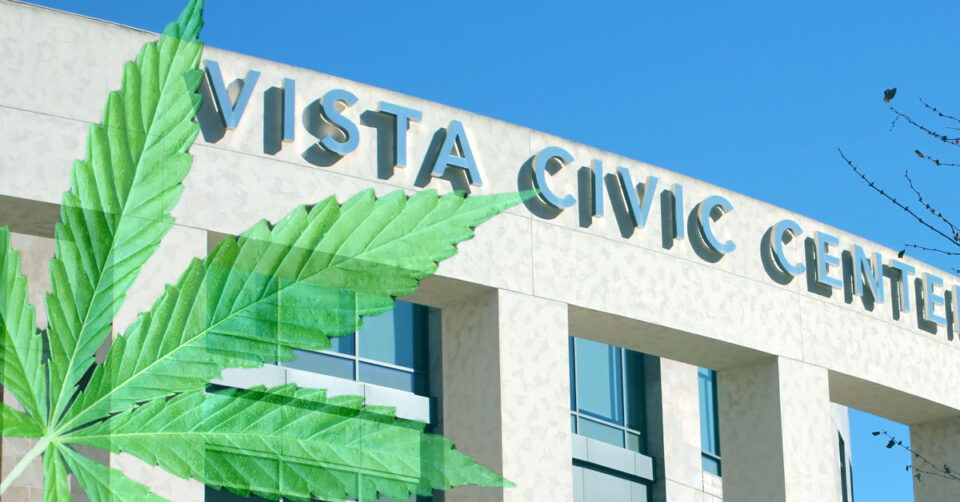VISTA — To alleviate pressures on cannabis businesses, the city of Vista cleaned up its rules to return hundreds of dollars in overpayments back to local dispensaries, and to collect some missing fees.
When voters passed Measure AA in 2018, several sections in the Cannabis Business Tax Code — relating to refunds, apportionment and appeals — were left out for later consideration.
During its regular meeting last Tuesday, the Vista City Council adopted an ordinance that adds four sections to its cannabis business tax, including an administrative process for businesses to collect overpayments.
In its annual audit, the city found a need for those parameters as there were several instances of miscalculated tax payments from cannabis businesses. Many overpaid the city, while there were some underpayments.
“The measure intended the mechanics of the tax would be observed and later enacted on by the council,” said Vista City Attorney Darold Pieper. “Now that we’ve had a couple of years of actual operations, we are in need of having some of those mechanics set forward.”
Cannabis business owners must pay an annual tax in order to operate in Vista. However, the series of taxation in place isn’t always straightforward. There is a series of federal and state taxes owed — which includes an excise tax of 15% to distributors — and locally enforced costs on cannabis and cannabis-related products.
In Vista, there is a marijuana cultivation tax at $14 per square foot, and gross receipts of marijuana businesses at 6% on manufacturing and distribution, 7% on medicinal retail, 7% on adult-use retail, and 1% on testing.
Products that are not cannabis-related, such as a battery, are not taxed at a city level. This is one area payments start to get tricky, as not all points-of-sale machines can differentiate between these items.
Flora Verde, one of the first dispensaries to receive businesses permits in Vista, applauds the council for taking action. Co-owner Justin Christman said that Flora Verde intentionally overpaid, but that isn’t the advice every business is getting from advisors.
“It’s a technological mess, it’s an accounting mess,” Christman said. “The reason we overpaid is we chose to err on the side of caution because not a lot of this is clearly spelled out.”
Between struggles of accounting for when the cannabis business tax applies and interpreting rules at various levels of government, “It’s an absolute nightmare,” Christman said.
The Vista City Council, coming to a similar conclusion, adopted an appeals process for the cannabis tax code. The city added a section to define those funds and created a route with the tax administrator to get out of the city’s debt. The ordinance also allows the city to impose a 25% penalty if nonpayment can not be resolved.
Businesses, though, now can appeal those disputes through the ordinance.
“In speaking with a couple of business owners, I know they’re excited that there’s an appeals process so that if there’s any dispute on accounting between our audit and the numbers that [the businesses] have, we’ll actually have a process for it,” said Councilmember Joe Green, District 2.
According to the ordinance, any cannabis business can file an appeal of any tax, interest or penalty with the city clerk within 15 days of the due date. (Cannabis businesses in Vista are subject to a monthly tax bill.) At that time, a public hearing will be set, preceded by consideration and destination by the council.
The ordinance adopted last week includes adding language to Chapter 7.10 of Vista’s city code. The new sections are Debt, Deficiencies and Assessments; Refunds; Apportionment; Appeals to the Cannabis Business Tax Chapter.



